

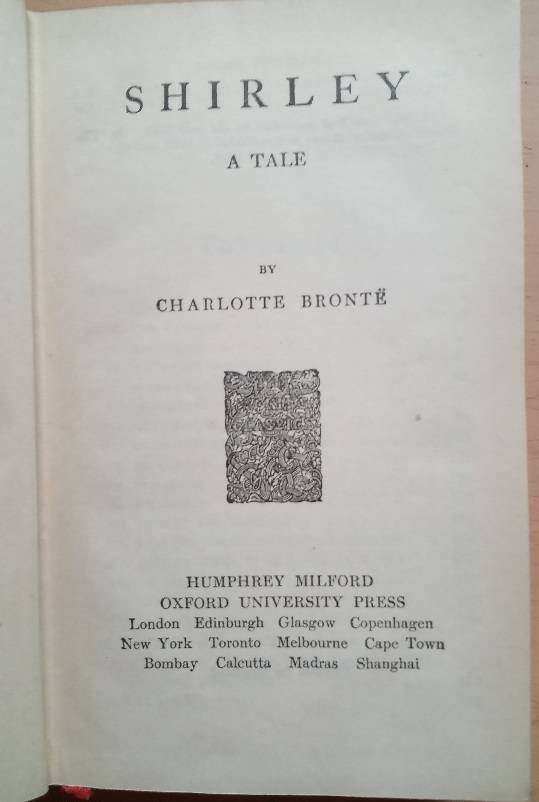
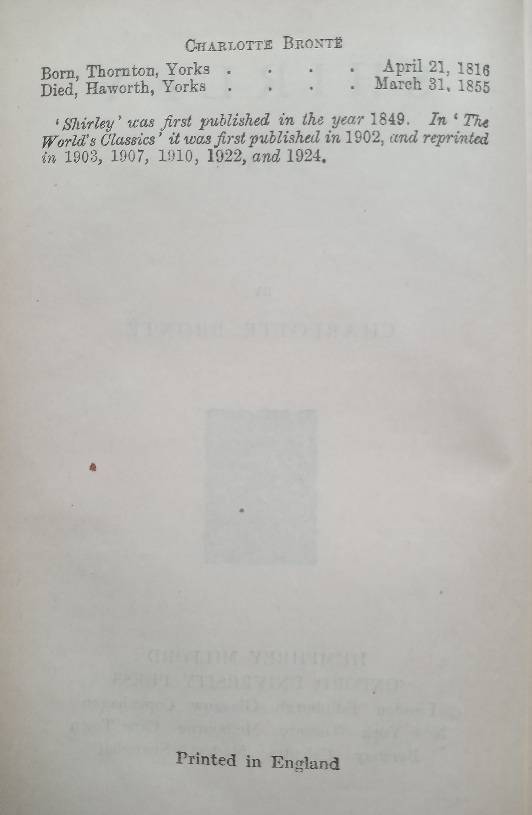
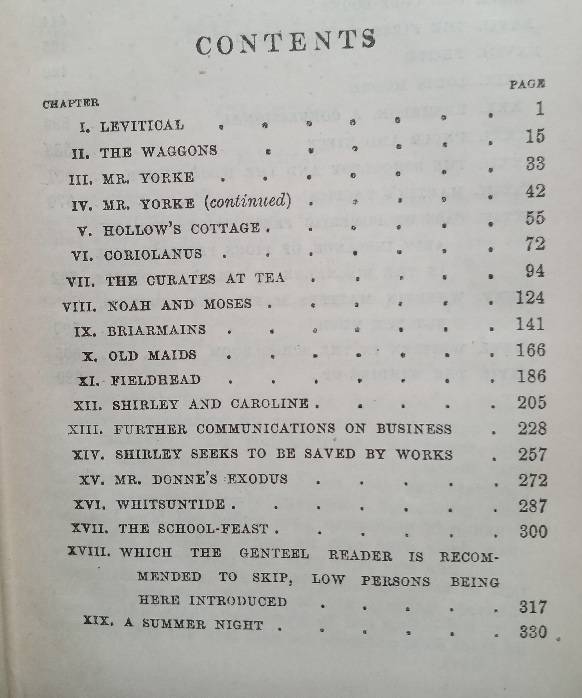
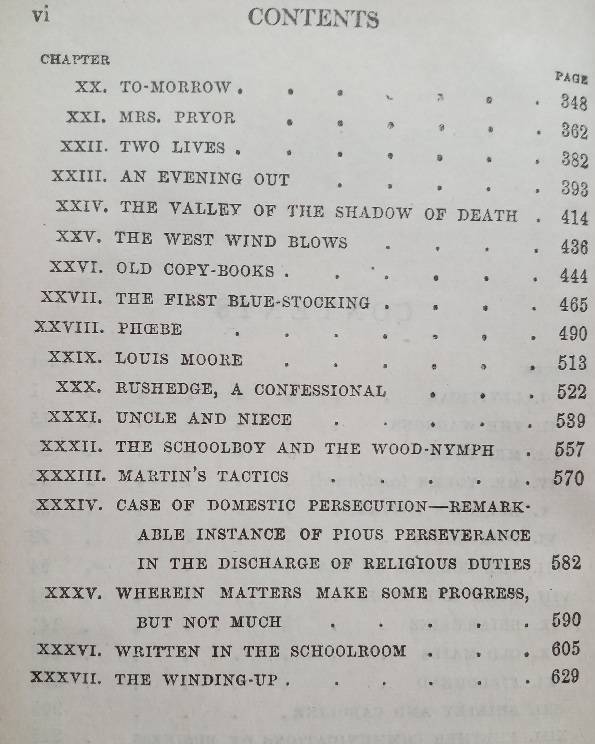
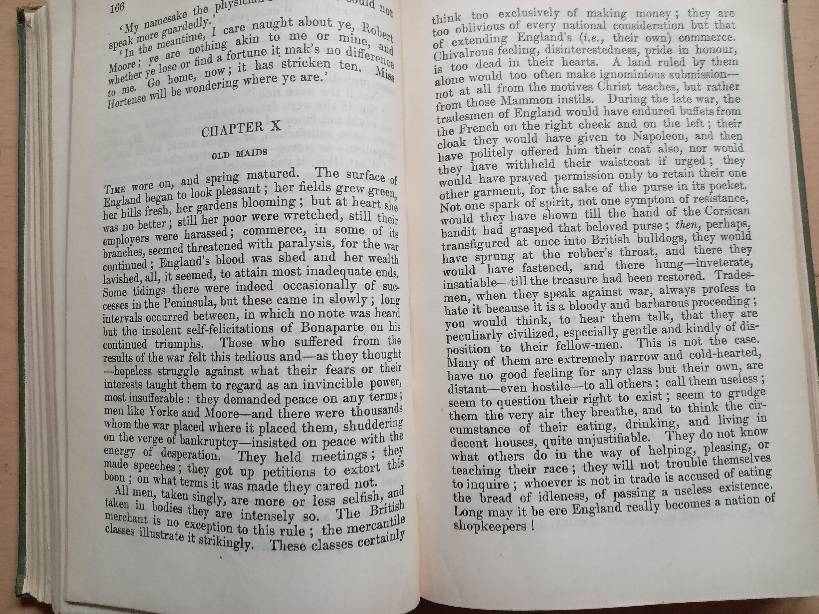





Shirley - Charlotte Brontë 1924
Check my rate
View locations
| Main centres: | 1-3 business days |
| Regional areas: | 3-4 business days |
| Remote areas: | 3-5 business days |












| Main centres: | 1-3 business days |
| Regional areas: | 3-4 business days |
| Remote areas: | 3-5 business days |
Published by Humphrey Milford, Oxford University Press 1924
World's Classics 1st edition 1902 4th printing 1924
A novel borne from tragedy, Charlotte published Shirley in 1849; and while writing the novel, her brother Branwell died in 1848; followed shortly thereafter by the death of her sister Emily also in 1848; and then, horrifyingly, by her remaining sister, Anne, in 1849. In fact, it is believed that the characters of her two primary female protagonists in the novel, Caroline Helstone and Shirley Keeldar are modeled after her sisters Anne and Emily, respectively. Shirley was Charlotte Bronte's second published novel, following Jane Eyre which was published in 1847.
Following the tremendous popular success of Jane Eyre, which earned her lifelong notoriety as a moral revolutionary, Charlotte Brontë vowed to write a sweeping social chronicle that focused on "something real and unromantic as Monday morning." Set in the industrializing England of the Napoleonic wars and Luddite revolts of 1811-12, Shirley (1849) is the story of two contrasting heroines. One is the shy Caroline Helstone, who is trapped in the oppressive atmosphere of a Yorkshire rectory and whose bare life symbolizes the plight of single women in the nineteenth century. The other is the vivacious Shirley Keeldar, who inherits a local estate and whose wealth liberates her from convention.
A work that combines social commentary with the more private preoccupations of Jane Eyre, Shirley demonstrates the full range of Brontë's literary talent. "Shirley is a revolutionary novel," wrote Brontë biographer Lyndall Gordon. "Shirley follows Jane Eyre as a new exemplar but so much a forerunner of the feminist of the later twentieth century that it is hard to believe in her actual existence in 1811-12. She is a theoretic possibility: what a woman might be if she combined independence and means of her own with intellect. Charlotte Brontë imagined a new form of power, equal to that of men, in a confident young woman [whose] extraordinary freedom has accustomed her to think for herself....Shirley [is] Brontë's most feminist novel."